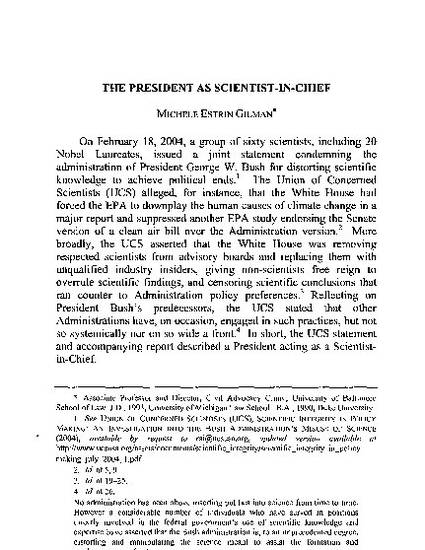
During the Bush Administration, many scientists, both inside and outside of government, asserted that the President was distorting scientific knowledge to achieve political ends. In controlling the scientific output of government agencies, President Bush acted consistently with unitary executive theory. Under this theory, the President can direct the output and discretion of government agencies. This article examines the tension between a unitary executive and government agencies engaged in scientific research and policy making. In particular, the article assesses the legality of two high profile instances in which President Bush allegedly distorted scientific data to achieve his policy objectives: global climate change and human embryonic stem cell research. The article assesses whether a Scientist-in-Chief model of executive control fosters the values of accountability and efficiency that underpin unitary executive theory. The article also explores various checks on the Scientist-in-Chief, including Congress, the courts, the states, and the media. The article concludes that a Scientist-in-Chief model of executive authority undermines democratic accountability and scientific deliberation. Notably, President Obama has expressly disavowed the Scientist-in-Chief model of his predecessor.
